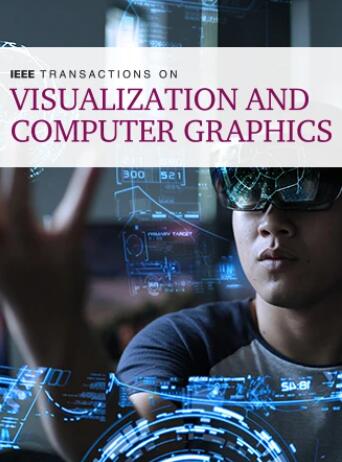利用反射场的神经投影映射
IF 6.5
1区 计算机科学
Q1 COMPUTER SCIENCE, SOFTWARE ENGINEERING
IEEE Transactions on Visualization and Computer Graphics
Pub Date : 2023-06-11
DOI:10.48550/arXiv.2306.06595
引用次数: 0
摘要
我们将高分辨率空间自适应光源或投影仪引入神经反射场,既可以校准投影仪,也可以进行逼真的光编辑。投影纹理相对于所有场景参数是完全可微分的,并且可以被优化以产生适合于增强现实和投影映射中的应用的期望外观。我们的神经领域由三个神经网络组成,估计几何形状、材料和透射率。使用分析的BRDF模型和精心选择的投影模式,我们的采集过程简单直观,具有固定的未校准投影和带同一光源的手持相机。正如我们所展示的,集成到管道中的虚拟投影仪提高了场景理解,并支持各种投影映射应用程序,从而减少了在传统设置中按视图或投影仪位置执行耗时校准步骤的需要。除了实现新的视点合成外,我们还展示了最先进的性能投影仪对新视点的补偿、对材料和场景重建中基线的改进,以及执行投影图像优化的三个简单实现的场景,包括使用2D生成模型来一致地指示来自多个视点的场景外观。我们相信,通过对场景和投影图像的联合优化,神经投影映射为新颖而令人兴奋的下游任务打开了大门。本文章由计算机程序翻译,如有差异,请以英文原文为准。
Neural Projection Mapping Using Reflectance Fields
We introduce a high resolution spatially adaptive light source, or a projector, into a neural reflectance field that allows to both calibrate the projector and photo realistic light editing. The projected texture is fully differentiable with respect to all scene parameters, and can be optimized to yield a desired appearance suitable for applications in augmented reality and projection mapping. Our neural field consists of three neural networks, estimating geometry, material, and transmittance. Using an analytical BRDF model and carefully selected projection patterns, our acquisition process is simple and intuitive, featuring a fixed uncalibrated projected and a handheld camera with a co-located light source. As we demonstrate, the virtual projector incorporated into the pipeline improves scene understanding and enables various projection mapping applications, alleviating the need for time consuming calibration steps performed in a traditional setting per view or projector location. In addition to enabling novel viewpoint synthesis, we demonstrate state-of-the-art performance projector compensation for novel viewpoints, improvement over the baselines in material and scene reconstruction, and three simply implemented scenarios where projection image optimization is performed, including the use of a 2D generative model to consistently dictate scene appearance from multiple viewpoints. We believe that neural projection mapping opens up the door to novel and exciting downstream tasks, through the joint optimization of the scene and projection images.
求助全文
通过发布文献求助,成功后即可免费获取论文全文。
去求助
来源期刊

IEEE Transactions on Visualization and Computer Graphics
工程技术-计算机:软件工程
CiteScore
10.40
自引率
19.20%
发文量
946
审稿时长
4.5 months
期刊介绍:
TVCG is a scholarly, archival journal published monthly. Its Editorial Board strives to publish papers that present important research results and state-of-the-art seminal papers in computer graphics, visualization, and virtual reality. Specific topics include, but are not limited to: rendering technologies; geometric modeling and processing; shape analysis; graphics hardware; animation and simulation; perception, interaction and user interfaces; haptics; computational photography; high-dynamic range imaging and display; user studies and evaluation; biomedical visualization; volume visualization and graphics; visual analytics for machine learning; topology-based visualization; visual programming and software visualization; visualization in data science; virtual reality, augmented reality and mixed reality; advanced display technology, (e.g., 3D, immersive and multi-modal displays); applications of computer graphics and visualization.
 求助内容:
求助内容: 应助结果提醒方式:
应助结果提醒方式:


